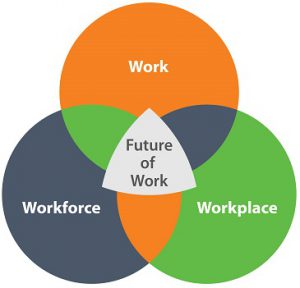The future of work isn’t some far-off idea—it’s happening all around us. As technology advances, the workforce evolves, and societal expectations shift, the workplace is changing faster than ever. Adapting to these changes is crucial for both businesses and individuals.
Automation and AI: Redefining Roles
Automation and AI are reshaping how we work. As machines take over routine tasks, humans are freed up to focus on strategic, creative, and complex work. While there’s concern about job losses, the reality is that new roles will emerge, blending technical know-how with human creativity. The key is to continuously upskill and reskill to stay relevant.
The Gig Economy and Flexible Work
The gig economy is booming, with more people opting for freelance, contract, and part-time work. This shift offers flexibility and access to diverse talent for businesses, but it also raises issues around job security, benefits, and fair pay. As the gig economy grows, there’s a need for policies that protect workers while maintaining the flexibility that makes this model appealing.
The Need for Lifelong Learning
In this new work landscape, learning never stops. Skills can become outdated quickly, making continuous education essential. Companies will need to offer ongoing training, and individuals must take charge of their own growth. With the rise of online courses, micro-credentials, and certifications, staying updated with industry trends has never been easier or more accessible.

Redefining Leadership
As the workplace evolves, so does the nature of leadership. Tomorrow’s leaders will need to be adaptable, empathetic, and skilled at managing diverse, distributed teams. The focus will shift from rigid hierarchies to more collaborative, agile structures that empower employees. Leaders must be tech-savvy, culturally aware, and capable of fostering a sense of belonging and purpose within their teams.
Technology’s Role in Shaping the Future
Technology will continue to drive the future of work. From cloud computing and AI to virtual reality and blockchain, emerging technologies will redefine industries and how we work. Companies that embrace digital transformation and stay ahead of tech trends will be better equipped to thrive in this competitive landscape.
The future of work is dynamic and full of possibilities. While it brings challenges, it also offers opportunities for growth, innovation, and better work-life balance. Businesses that embrace change, invest in their people, and leverage technology will not just survive—they’ll thrive. For individuals, the key is to stay adaptable, keep learning, and take control of your career path.